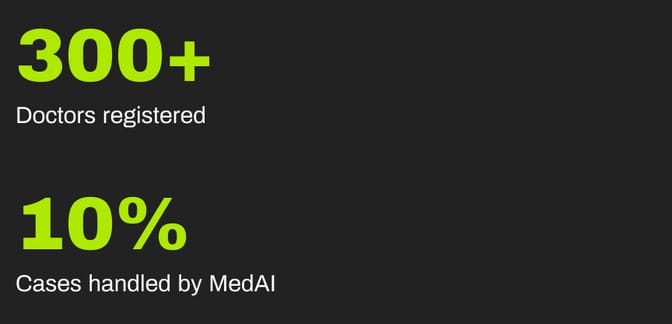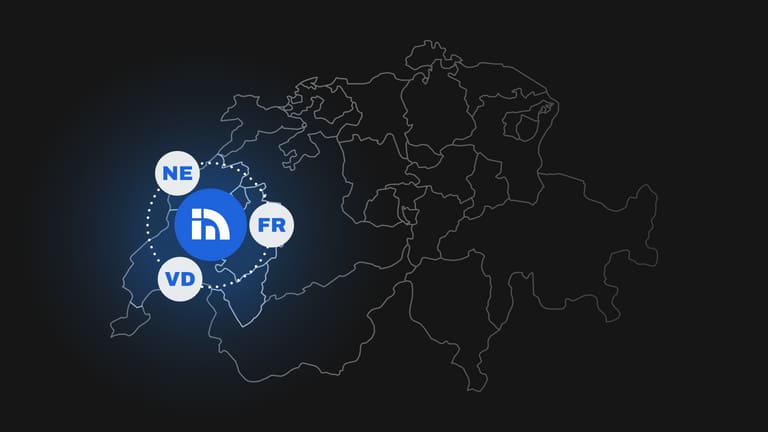First successes after 6 months
The The MedAI platform went live at the end of 2024 with a first version designed exclusively for individual doctors. This allowed us to test the tool with first users, who created an account and began processing their first cases. After the initial 6-month pilot phase (without active communication from the OAI), more than 300 doctors had registered, and around 10% of medical reports were already being processed via MedAI. The AI/IV Office estimates that the processing time for cases has been reduced by a factor of four. These are highly encouraging results.

Integration of Institutional Entities
In a second phase, the interface was extended to support collective users such as hospitals, medical centres and medical practice staff. This added more complexity to process management, but it was a necessary step to reflect real-world practice.
Opening up the platform to institutional users also enabled the option of delegating the completion of medical reports to practice staff, such as medical secretaries. This makes the process even more efficient by reducing the administrative burden for doctors.
As MedAI becomes central to the communication between doctors and the IV/AI Office, we’ve also integrated new exchange features. The platform now handles information not directly related to the medical report itself – for example, updating personal details, reporting absences or departures, and submitting documents. This reinforces MedAI’s role as a cornerstone of doctor-OAI communication.
Expansion to the Cantons of Neuchâtel and Fribourg
The DI Office of the Canton of Vaud initiated this project with the support of the Federal Social Insurance Office (FSIO), launching an online platform pilot. The DI Offices of Fribourg and Neuchâtel were involved from the beginning, although the early versions of MedAI were limited to the canton of Vaud. Expanding to Neuchâtel and Fribourg allowed us to test the system on a larger scale – a key step, in our view, before proposing it to other cantonal IV/AI offices and doctors throughout Switzerland.
The IT environment was relatively similar, as the cantons are part of GILAI, which simplified integration. The main challenge was establishing the foundations of a multi-cantonal instance, with clear and secure management of access rights and permissions.
Including the bilingual canton of Fribourg also enabled the development of a multilingual platform – not only in terms of the interface, but also for the medical report templates, which was a more complex task to implement.
Following the presentation of wireframes in late 2023, development began in January 2024 with one two-week sprint per month. Each sprint involved one Product Owner, three to four Developers and one Designer. Eight sprints were needed for version 1, which focused on individual users in Vaud. Four additional sprints facilitated the transition to version 2, incorporating institutional users in Vaud. Finally, three more sprints enabled the opening of the platform to the cantons of Fribourg and Neuchâtel. This Agile development process was made easier thanks to a client who shared not just the methodology, but also the mindset that comes with it. This synergy enabled smooth communication, strong team spirit and a lasting relationship of trust.
We are pleased to see the tangible, positive impact this tool is having for all the players involved in IV in the other cantons. By integrating agility, simplification and value creation, our approach is fully in line with the drive to modernise the healthcare system, to which we are proud to contribute our expertise.

